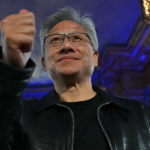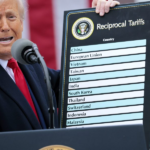In a pivotal moment during Sam Bankman-Fried’s trial on charges related to fraud and money laundering, Robert Boroujerdi, the managing director of Third Point, took the stand to corroborate the government’s case against the defendant. Boroujerdi, who previously held the position of head of global securities research at Goldman Sachs, shed light on the circumstances surrounding Third Point’s involvement with FTX and its sister company Alameda.
Third Point, an institutional alternative asset manager catering to pension funds, endowments, and high-net-worth individuals, was founded in 1995 by billionaire Daniel Loeb. Boroujerdi’s role within the firm involves identifying potential investment opportunities, and it was through this role that he became acquainted with FTX.
The sequence of events began in the first quarter of 2021 when Boroujerdi initiated email correspondence with Sam Bankman-Fried and other relevant parties as a preliminary step toward potential investment in the cryptocurrency exchange. By mid-March of the same year, a Zoom call took place, involving Bankman-Fried, Boroujerdi, and members of the Third Point investment team. During this call, Bankman-Fried took the lead and discussed various aspects of FTX, including its growth, strategic plans, and financial details.
Boroujerdi’s testimony brought to light a crucial aspect of Third Point’s investment decision. He revealed that the hedge fund relied on the financial data provided by FTX but was not informed about additional expenses that were not included in the digital documents found in FTX’s “data room.” In Boroujerdi’s view, all relevant information, whether favorable or unfavorable, should have been disclosed.

A subsequent Zoom call occurred several weeks later, during which Alameda, the sister company of FTX, was mentioned. Bankman-Fried clarified that he had co-founded Alameda and characterized its relationship with FTX as an “arm’s length business.” He asserted that Alameda operated independently and in its own self-interest, indicating that his equity stake in Alameda did not influence the relationship.
Boroujerdi emphasized that Third Point’s understanding was that Alameda was treated like any other trading firm using the exchange. He stressed the importance of fairness and equal treatment on an exchange platform, expressing that had Third Point been aware of any preferential treatment given to Alameda or its ability to withdraw customer funds from FTX, the hedge fund would not have proceeded with its investment.









